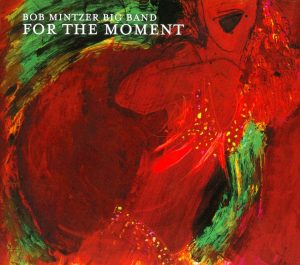
Distances (ECM)
Norma Winstone
Released March 11, 2008
Grammy Nominee for Best Jazz Vocal Album 2009
Prix du Jazz Vocal de l’Académie du Jazz 2008
YouTube:
https://music.youtube.com/watch?v=imeYRSlB0e8&list=OLAK5uy_nf4zVtezQ2yEN0oZ5-jlCQMgRxXG48f5c
Spotify:
https://open.spotify.com/album/1tc9kAV0hErtN4lTCYAbMj?si=yp2JxD2kQB2cevENo32Wwg
About:
Revelatory new album from England’s finest jazz singer Norma Winstone, her first for ECM in a decade, leading an inspired trio with German reedman Klaus Gesing and Italian pianist Glauco Venier, both in their label debuts.
In 2007 Norma Winstone received the MBE in recognition of services to British jazz, but the influence of the London-born singer has been much more than a regional affair. In the 1960s Winstone was a pioneer in vocal improvisation in important collaborations with musicians including Joe Harriott, John Stevens and Mike Westbrook. She came to ECM in the mid 1970s with the group Azimuth (with John Taylor and Kenny Wheeler) whose five albums set new standards in improvised chamber music. She also appeared on ECM under leaders Wheeler (Music for Large and Small Ensembles) and Eberhard Weber (Fluid Rustle), and issued her own album ‘Somewhere Called Home’ in which she put words to tunes by Egberto Gismonti, Ralph Towner and others and sang standards. Beyond ECM she’s collaborated with Americans Jimmy Rowles, Fred Hersch, Gary Burton and Steve Swalllow, and is increasingly regarded as a first-rate lyricist as well as a great singer.
‘Distances’ is a magical collaboration with Italian pianist Glauco Venier and German clarinettist/ saxophonist Klaus Gesing, players who have a long history as duo partners. Guesting with them eight years ago, Norma saw the potential in the combination and they have since developed their own musical language as a group, including an album for Universal, Chamber Music, but ‘Distances’ takes the work to another level. Gesing and Venier, both strong composers, are also players who serve the song and the text. The classically trained Gesing has developed a unique role for the bass clarinet, alternating between a real bass function and lyrical, soloistic flights. Venier on piano establishes the harmonic frameworks, drawing influence from jazz and classical and folk sources. Songs include Cole Porter’s “Every Time We Say Goodbye”, Peter Gabriel’s “Here Comes The Flood”, “Giant’s Gentle Stride” (a Coltrane tribute co-authored by Winstone and Gesing), “Ciant” (cross-referencing Satie and Pasolini) and more – including the beautiful title track by with its irresistible melody and powerful, visually-evocative words.
Track Listing:
1. Distance (Glauco Venier / Norma Winstone) 5:42
2. Every Time We Say Goodbye (Cole Porter) 6:13
3. Drifter (Klaus Gesing / Norma Winstone) 5:00
4. Giant’s Gentle Stride (Klaus Gesing / Norma Winstone) 7:01
5. Gorizia (Glauco Venier) 4:01
6. Ciant (Pier Paolo Pasolini / Erik Satie) 5:17
7. The Mermaid (Klaus Gesing / Norma Winstone) 4:34
8. Here Comes the Flood 6:03
9. Remembering the Start of a Never Ending Story (Hubert Nuss / Norma Winstone) 5:11
10. A Song for England (Klaus Gesing) 3:07
Personnel:
Norma Winstone: voice
Glauco Venier: piano
Klaus Gesing: bass clarinet, soprano saxophone
Recorded April 2007 Artesuono Recording Studios, Udine
Engineer: Stefano Amerio
Supervision: Guido Gorna
Editing and mixing: Stefano Amerio and Manfred Eicher
Produced by Manfred Eicher
Review:
Norma Winstone’s refreshingly honest and understated vocal talents have gone largely under-recognized in the United States, but with her return to the ECM label, perhaps listeners worldwide will give her another try. Singing better than ever while exploring the deeper regions of human strength and frailty, Winstone and her outstanding, drummerless group featuring the excellent team of Italian pianist Glauco Venier and German reedman Klaus Gesing, are simply matched in heaven, high above the clouds and this mortal coil. All hushed tones or thematic nuances are played to the hilt with wisps of smoke and a modicum of smoldering heat. Venier is quite accomplished, following in footsteps of the great ECM pianists like Bobo Stenson, Mike Nock, and the introspective Keith Jarrett, while Gesing plays poetic bass clarinet and soprano saxophone as echoes in the “distance” of the horizons of a new day. A consummate interpreter, Winstone adopts the standard “Everytime We Say Goodbye” in a most poignant, languid fashion aside Gesing’s fox hunt soprano tones and Venier’s delicate musings, while taking Peter Gabriel’s “Here Comes the Flood” in echoes of impending fear and very understated regret. Then there’s “A Song for England,” an entertainingly funny and self-deprecatingly pitiful look at her home country, with a light bass clarinet groove, some scat, and spare lyrics about British weather and the moods it incites. Naturally melancholy, “Distance” weaves the common theme of hauntingly unfulfilled love into the mix, “Drifter” is a tip-toeing, spatial piece, typically ECM chamber style, with lyrics stating her male friend “always knew he’d do what he wanted to do, the way that a wind changes its direction will turn, and leave you wondering, where did summer go?” Venier composed several of these selections with an acute vision of dreamy imagery, with “Gorizia” in a traipsing waltz with Winstone’s wordless vocals, while “The Mermaid” is the ultimate surreal fantasy myth visage, as scratched-out chicken rhythms are juxtaposed against probing and zinged piano techniques while the singer tells her siren tale. The most optimistic track is the reflective, ongoing idealistic “Remembering the Start of a Never Ending Story,” while the alluring “Giant’s Gentle Stride” holds a spirit song mentality close to heart in a deeper mode, with Gesing’s lilting soprano and Venier’s wonderful, minimalist piano chord variations. From beginning to end, this recording is a beautiful document of Winstone’s intelligent and lissome persona fully realized, and with the empathetic accompaniment wrapped up in this uniquely compelling music, has to rank as her very best recorded effort in a career that is still gaining creative momentum.
Michael G. Nastos (AllMusic)





